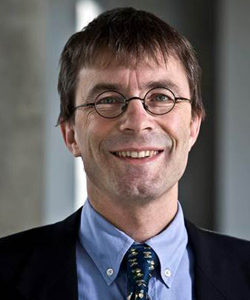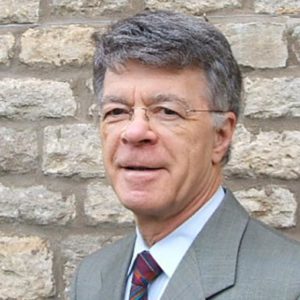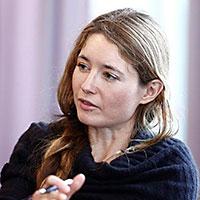Événement Virtuel
Equity Considerations in Nationally Determined Contributions

Under the Paris Agreement, Member States are due to submit their updated Nationally Determined Contributions (NDCs) by 31 December 2020. They are, therefore, invited to report on equity and fairness considerations. This event, convened by Switzerland within the framework of the Geneva Environment Network, looked into how these equity and fairness considerations can help highlight principles to stimulate the countries to be as ambitious as possible.
About this Session
Despite the COVID-19 pandemic, 2020 remains a milestone for climate action and the parties to the Paris Agreement are due to submit to the UNFCCC Secretariat their NDCs by 31 December 2020. However, the current delay in NDC communications within the agreed timelines is concerning. Hence, initiatives to better understand key features related to the NDCs are crucial. In this context, a closer look at fairness considerations can help highlight principles to stimulate the countries to be as ambitious as possible.
This event, convened ahead of the Climate Ambition Summit, seeks to create a better understanding of the following:
- Equity and fairness considerations in the context of NDCs
- Political interpretations, including different ways the countries reflect on equity and fairness considerations
The event looked at the various approaches of fairness and the different principles that can be applied to consider the fairness of an NDC. It also looked at how countries can apply this understanding to their respective NDC.
Speakers

H.E. Amb. Franz PERREZ
Ambassador for the Environment, Switzerland

Henry SHUE
Professor Emeritus of Politics and International Relations, Merton College of Oxford University

Anja KARNEIN
Associate Professor of Philosophy, Binghamton University, SUNY, New York

Lukas MEYER
Professor of Philosophy, Moral and Political Philosophy Section, University of Graz

Andreas BACHMANN
Ethical Issues Adviser, Swiss Federal Office for the Environment
Commentators
Ana Patricia VILLALOBOS
Head of Delegation for the UNFCCC negotiations, Costa Rica
H.E. Amb. Janine FELSON
Deputy Permanent Representative of Belize to the United Nations and Deputy Chairperson of AOSIS
Harald WINKLER
Professor in Faculty of Engineering and the Built Environment, University of Cape Town, South Africa
Vicente YU
Independent Consultant and UNFCCC Expert Reviewer
Sebastien DUYCK
Senior Attorney, Climate & Energy Program, CIEL
Summary
coming soon
Welcome and Introduction
H.E. Amb. Franz PERREZ, Ambassador for the Environment, Head of the International Affairs Division, Swiss Federal Office for the Environment
The relationship between equity, fairness and climate change is stimulating a lot of thinking. It often provokes emotional interventions, and it leads sometimes to value judgments, which may be more ideological and simplistic than a reflection of a thorough analysis of facts and possibilities. Thereby it is often forgotten that equity and fairness is more than a value judgment. If equity and fairness discussions would only reflect different values and ideologies, then a real interaction would not be possible. Equity and fairness has to build on common denominators that are as objective and rationally defendable as possible.
Today’s event will go beyond ideology and is meant to deep dive into the theoretical thinking. I am really proud that such eminent persons have agreed to join us here in that virtual event to share their thorough analytical reflections on what fairness and equity could mean in the context of the obligations of the Paris Agreement to submit nationally determined contributions.
But before handing over to the speakers, let me briefly recall the context and the purpose of equity considerations in NDCs.
First step was the decision to develop an international instrument on climate change that should be applicable to all, meaning: engaging all.
This decision triggered two questions:
- How can we ensure that each country is undertaking what is needed to effectively address the threat of global climate change?
- How can we reflect the differences between big emitters such as China or the US and small emitters such as Switzerland or even smaller like Tuvalu, or the difference between countries with high capacity such as Korea or Saudi Arabia, and countries with very limited capacity such as Gambia or Bhutan?
This tension between on the one side the top-down need for maximal efforts by each country, and on the other side the need to reflect the fundamentally different circumstances of the different countries lead to the hybrid approach of bounded flexibility of the Paris agreement that combines:
- A bottom up approach of national determination
with - Top-down elements of pull and push factors guiding and limiting the space of national determination.
Thus:
– On the one side, each country has to determine itself how it contributes to the common objective and need. While each country has an obligation to submit such a contribution, it has itself to define its emission reduction target. Or, in the language of the Paris Agreement: the contributions of each country is nationally determined, it is an NDC.
On the other side,
- This NDC has to reflect the country’s highest possible ambition;
- Each country has to provide, when submitting its NDC, the information necessary for the clarity, transparency and understanding of its NDC;
- This includes information from each Party on
- how its NDC contributes to the mitigation objectives of the UNFCCC and the Paris Agreement;
- how the NDC reflects highest possible ambition,
- how a Party considers that its NDC is fair and ambitious in the light of its national circumstances,
- and information on its fairness considerations reflecting equity.
In a nutshell: The obligation to provide information about how a Party considers its NDC fair and equitable was conceived as a push and pull factor, motivating and stimulating Parties to formulate ambitious NDCs. By being obliged to explain how it considers its NDC adequate, fair and equitable, a Party should be forced to reflect seriously what would be adequate in the light of the common objective, and pushed to formulate targets that indeed reflect its highest possible ambition.
Switzerland has taken that obligation seriously, and it has understood it as a critical element in the delicate balance of the Paris Agreement with the potential to bring the international community through increasingly ambitious NDCs step by step on the 1.5° pathway. Therefore, Switzerland has organized already several events and side-events during COPs on equity. It will do so again at the next COP in Glasgow. But this event today comes at the critical moment when Parties move towards handing in their enhanced and updated NDCs.
In order to be able to appreciate these NDCs, it is helpful to have robust criteria for their equity considerations. And I think this is now definitively the moment to hand over back to you and then to the presentators, so that they can share with us their reflection of equity considerations in NDCs.
Presentation 1 | The Pivotal Generation: Unprecedented Responsibilities in an Unprecedented Historical Period
Prof. Henry SHUE, Professor Emeritus of Politics and International Relations, Merton College of Oxford University (see outline)
Comment: Prof. Anja KARNEIN, Associate Professor of Philosophy, Binghamton University, SUNY, New York (see presentation)
Prof. Shue presentation focused on the current generation as the pivotal generation in human history. And reflect also on the fact that the responsibility of entrenching an Energy Revolution – an irreversible transition away from the current fossil fuel regime – might be too much to ask of one generation.
Inter-generational equity really requires each of us to do the maximum possible. More then fairness within today’s generation is not to put an undue burden to the future. Referring to the Swiss NDC, because we are doing our fair-share we are not suppose to do more that what we are doing is not a good argument, in vue of this inter-generational perspective, we should do more.
Presentation 2 | Fairness Critically Conditions the Carbon Budget Allocation Across Countries
Prof. Lukas MEYER, Professor of Philosophy, Moral and Political Philosophy Section, University of Graz (see presentation)
Commentator: Andreas Bachmann, Ethical Issues Adviser, Swiss Federal Office for the Environment
Tesecond cluster discussed models for a top-down allocation of the carbon budget. This approach tried to determine from an objective perspective top-down what should be done by each country.
Commentators with a Link to the Climate Change Negotiations
Ana Patricia VILLALOBOS | Head of Delegation for the UNFCCC negotiations, Costa Rica
Paris is taking a bottom-up approach and that is why fairness approach is so important. We need to maximize what we can do.
H.E. Amb. Janine FELSON | Deputy Permanent Representative of Belize to the United Nations and Deputy Chairperson of AOSIS
Both these approaches do not work from a small island country perspective. Equity and fairness cannot be considered without looking at loss and manage.
Harald WINKLER | Professor in Faculty of Engineering and the Built Environment, University of Cape Town, South Africa
Equity has to be a tool that helps us in the country and never an argument for inaction.
Vicente YU | Independent Consultant and UNFCCC Expert Reviewer
Vicente Yu highlighted some key message. Fairness and equity in NDCs is, under Art. 2 of the Paris Agreement, “in the context of sustainable development and eradication of poverty”. What this means is that, as developing countries seek to put in place NDCs that are fair and ambitious, their national consideration of what is fair and equitable in light of their national circumstances would be shaped by their national objectives with respect to achieving sustainable development and eradicating poverty. This would entail looking at the following considerations as key elements of what fairness and equity in NDCs would look like:
- Ensuring energy access for their peoples and industries à necessarily implying looking at what would be the most cost-effective, feasible and clean energy transition possible away from carbon-intensive energy that will still be able to provide sufficient energy to meet the energy needs of the country
- Ensuring that economic development that creates jobs continues to take place à this could mean looking at just transition and economic diversification policies and measures; structural changes in the economy to make it more circular and sustainable while ensuring that the working population is supported in transitioning; focusing on enhancing the standard of living of the population while maintaining low or decreasing high carbon footprints
- Reflecting and taking into account historical cumulative as well as present emissions in determining the level of mitigation effort to be undertaken as part of the NDC that would be considered as fair and equitable while at the same time be ambitious
- Capacity to act as an element of fairness and equity in NDCs à countries that currently have greater capacity to act because of past historical cumulative emissions resulting from fossil fuel-intensive historical development should act more to mitigate their emissions than others as well as act more to support (through climate finance, technology transfer, and capacity building) developing countries. At the same time, developing countries need to also act on climate change (mitigation and adaptation actions) to levels as much as they can afford consistent with their national circumstances and objectives and to act more to the extent that they are provided with greater financial, technological and capacity building support from developed countries
- Mitigation potential à a key aspect of fairness and equity in NDCs is to understand that depending on national circumstances, some countries with low per capita or aggregate emissions might find undertaking mitigation to be less of a priority (because it would not make economic or political sense to reduce already low emissions) but rather focus more on enhancing adaptation as their primary climate change response.
- Adaptation capacity à fairness and equity in NDCs can also mean recognizing and accepting adaptation actions as key components of NDCs, given that for most developing countries, adaptation to build climate resilience for their economies and communities will be of much policy importance than mitigation. But fairness and equity in NDCs will also mean that there can be limits to adaptation in the sense that there may be climate impacts that cannot be addressed, remedied or prepared for by adaptation, in which case having a strong loss and damage element in the international climate regime and as part of NDCs will be very important
- Loss and damage à NDC equity considerations also imply that limits to adaptation are recognized and addressed by having appropriate loss and damage-oriented elements be included in the NDCs, such as in the form of LD-related financial or technological support needs and provision as well as in setting up national, regional and international arrangements and mechanisms to provide such LD-related support.
Sebastien DUYCK |Senior Attorney, Climate & Energy Program, CIEL
Equity an fairness should be a tool for countries to develop ambitious NDCs and a call to do more at the domestic level. Grey emissions need to be addressed.
Q&A Session
Video
The event was live on Facebook.
